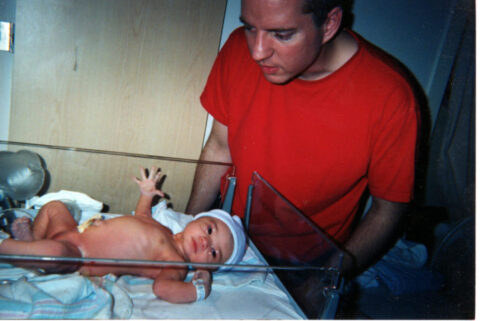 A couple is not considered clinically infertile until they have had at least 1 year of unprotected sex without conceiving a child.
A couple is not considered clinically infertile until they have had at least 1 year of unprotected sex without conceiving a child.
Unfortunately, each year thousands of couples discover that they are, indeed, infertile.
The most common reaction that a couple has once they discover they are unable to conceive is to suspect that there is a problem with the woman.
Through studies and statistics, doctors have discovered that male infertility is as common as the fertility that is experienced by women. It’s estimated that hundreds of thousands of men are diagnosed with infertility problems each year.
Recent studies have shown that between 40% and 50% of infertility cases are due to male factor infertility. While there are a few male fertility problems that are visible, such as hypospadias, undescended testicles, and impotence, the majority of fertility issues in men are not obvious. Source
Male infertility is an emotional subject, but couples must be properly educated if they are planning a pregnancy.
There are multiple causes of male infertility, and in this article we will address some of those issues…
Male Infertility Discovered Through Semen Analysis
In order to discover whether or not a man is infertile, a doctor will perform what is called a semen analysis (or a sperm count test).
The semen analysis measures the mobility, quality, and quantity of the man’s sperm.
A sperm analysis test can determine if a man is suffering from one of 3 different conditions:
- Oligospermia – an abnormally low sperm count. Your sperm count is considered lower than normal if you have fewer than 20 million sperm per millilitre of semen.
- Asthenospermia – the ability of sperm to move properly towards an egg. Normally, at least 50% of sperm should be motile; and this should be good quality progressive motility.
- Necrospermia – sperm that are dead on arrival.
The most common of the 3 conditions is Oligospermia or low sperm count.
Causes Of Male Infertility
Male infertility is quite common, and there are a number of reasons that a man could be suffering from the condition.
There are external factors that can make internal things go haywire. For example, some of the factors that affect sperm count are:
- excessive alcohol consumption
- smoking
- drug use
- high levels of stress
In some cases, a man’s own body fights to kill his own sperm. Specifically, the man’s body produces antibodies to fight against the sperm, leading the sperm to eventually be damaged by the immune system.
In the end, there are 3 main biological components that must be properly functioning in the male in order for him to father a baby without a problem:
- Pituitary gland
- Testes
- Hypothalamus
Those are the areas that are often examined when there’s a problem in the conception process.
The pituitary gland and the hypothalamus are 2 parts of the brain that are used for properly regulating male hormones. When one or both of these parts are not functioning properly, a man’s ability to reproduce is threatened. If a man’s brain is not functioning properly, it can affect the levels of testosterone in the body.
Other factors that contribute to negative sperm conditions include sexually transmitted diseases, infections, side effects from medication, and injuries. A man who has had chemotherapy from past cancer can also suffer from infertility due to the treatment.
Psychological Affects Of Male Infertility
It’s a fact: a man is less likely to get tested for infertility problems than a woman is.
The reasons for this are unclear. However, since many men identify their fertility with their sexuality, it is sometimes believed that receiving a diagnosis of male infertility could be hazardous to the man’s psychological health and self-image.
Unfortunately, due to the lower incidence in testing, male infertility can easily go unidentified as the source of a couple’s inability to conceive a child.
Male infertility issues should be approached with both understanding and seriousness.
Male Infertility Treatments
It’s not always possible to solve the issues tied to male infertility, but for those who have symptoms that are not irreversible or terribly severe, surgical treatment is one possible option to treating male infertility.
Medications are also available to treat defective and weak sperm. One medication that is used to treat infertile men is called Clomiphene citrate. The tablets are used to improve semen count and motility.
Those who find that surgery and medication unable to solve their infertility issues are typically men who are infertile due to genetic issues.
The Evolution Of Infertility – Does The Environment Play A Part?
For what it’s worth, some doctors are now saying that part of the problem is how polluted our environment is.
Dr. Oren Hasson, an evolutionary biologist, believes that it is evolution that has turned our bodies against us forcing men to create super sperm, and women to create an environment that only allows one sperm to fertilize an egg and which kills off all other sperm.
As a couple’s bodies fine tune to each other, they combine with the problems of evolution mentioned above, and create a situation of infertility.
Hmmm….
I like to help people find unique ways to do things in order to save time & money — so I write about “outside the box” ideas that most wouldn’t think of. As a lifelong dog owner, I often share my best tips for living with and training dogs. I worked in Higher Ed over 10 years before switching gears to pursue activities that I’m truly passionate about. I’ve worked at a vet, in a photo lab, and at a zoo — to name a few. I enjoy the outdoors via bicycle, motorcycle, Jeep, or RV. You can always find me at the corner of Good News & Fun Times as publisher of The Fun Times Guide (32 fun & helpful websites).







